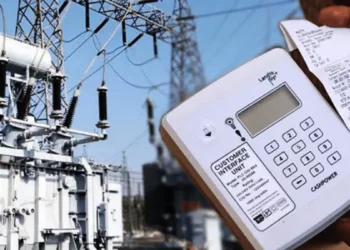The Federal Executive Council (FEC), yesterday approved a N1.5 trillion reduction from the 2020 Budget.
Disclosing this while addressing State House Correspondents after the Wednesday’s FEC meeting, Minister of Finance, Budget and National Planning, Mrs Zainab Ahmed, said the budget cut was one of the measures approved by the federal government to stabilize the economy.
President Muhammadu Buhari, last week, constituted a committee to assess the impact of the Novel Coronavirus (COVID-19) pandemic outbreak, as well as the crash of crude oil price, on the economy and propose measures to sustain the economy.
Minister of Finance said her committee had briefed the FEC on the measures it had come up with, adding that the presentation was approved.
She said the measures were arrived at, considering the current economic realities, adding that government would be working on a worst scenario oil benchmark of $30 per barrel at 2.18 million barrels per day.
Some of the measures, according to her, include a cut down on the size of the federally funded upstream projects by N457 billion, reduction of projected revenue from excise duty, cut down on capital expenditure by 20%, a reduction of recurrent expenditure by 25%, a ban on recruitment except for essential services and the review of social investment programme among others.
Some other measures approved were the reduction of projected revenue from privatisation by 50% and the suspension of recruitment exercise in the civil service.
She said: “I’m pleased to report that just yesterday His Excellency has approved a number of measures for us to implement. These measures include the introduction of PMS price modulation mechanism. The reason being that at the low crude oil price of $30 to $32 per barrel, there’s no under recovery. The under recovery is right now zero, in fact, we are at an over recovery stage, meaning the PMS price will be reduced to reflect the reduced price of the crude oil in the international market.
“Mr President also approved that we should cut down on the size of the federally funded upstream projects of the petroleum sector. The reason being we want to be able to get more revenue, by less reductions from NNPC. The reduction of the crude oil price from the $57 per barrel that we budgeted to $30 means that we are going to get so much less revenue, almost 45% less than we planned and because of that we have to amend a lot of projections in the budget as well as in EMTEF to reflect our current realities.
“The President also agreed that we should do a scenario to reflect what the actual position will be with a $30 crude oil price, that is we were to anticipate what will be the worst case scenario and we’ve worked on that scenario and this scenario necessitates that quite a number of expenditures needed to be cut down, even as we review how we can enhance revenues that are not directly affected by the crude oil price decline.’’



